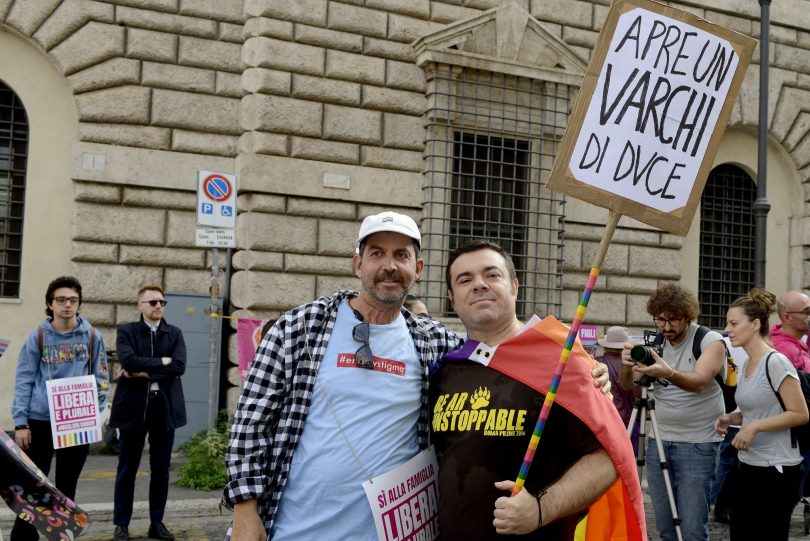Surrogacy has been banned inside Italy since 2004. Now, it’s a criminal offense for Italian citizens to seek surrogacy outside of the country, too.
Penalties for people who pursue surrogacy in other countries include fines up to 1 million euros and sentences of up to two years in prison. Many view this policy as an attack on same-sex couples, effectively criminalizing parenthood for gay couples.
Nevertheless, criminalizing surrogacy has been a talking point for conservative Prime Minister Giorgia Meloni for a while. “I continue to believe that surrogacy is an inhuman practice,” Meloni said at an April conference ‘For a Young Europe: Demographic Transition, Environment, Future.’ “I support the bill that makes it a universal crime.”
Meloni’s views on surrogacy echo sentiments upheld by the Catholic Church: that surrogacy separates procreation from marriage. Expressing support, Meloni’s Cabinet member Eugenia Roccella insisted that “people are not objects, children cannot be bought, and you cannot sell or rent human body parts.”
“This simple truth, already contained in our legal system, that punishes as a crime the aberrant practice of surrogacy, can no longer be circumvented,” Roccella said.
Of course, there’s been some major pushback on this legislation.
Riccardo Magi, another member of the parliament, reportedly seeks to challenge the law in the Constitutional Court. He took to social media to share his contention with the ruling.
“The right has made it illegal for Italian citizens to use surrogacy even in those countries where [it] is perfectly legal, regulated and safe,” he wrote on social media. “Women’s bodies, wombs, and freedom belong to women. Not to Giorgia Meloni. Not to this government. Not to any government.”
Michela Calabrò, head of the Transfeminist Women’s Network at Arcigay—an LGBTQ+ nonprofit—referred to the new law as a “serious denial of individual freedoms and self-determination.”
“[It] not only limits the possibility of choice, but also feeds a patriarchal vision of the women’s bodies,” she said. This largely impacts both LGBTQ+ and infertile couples who require options like surrogacy to have children.







